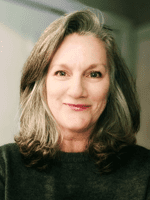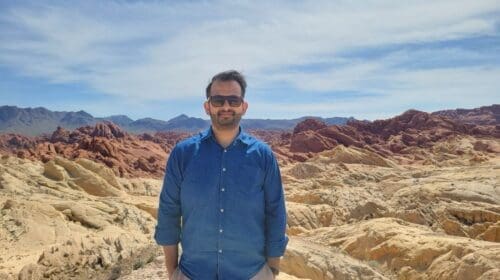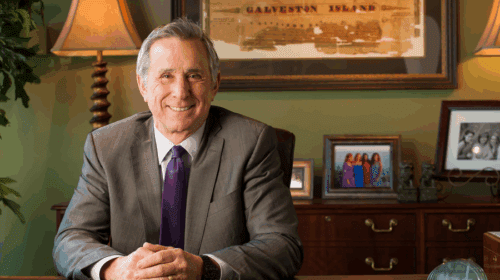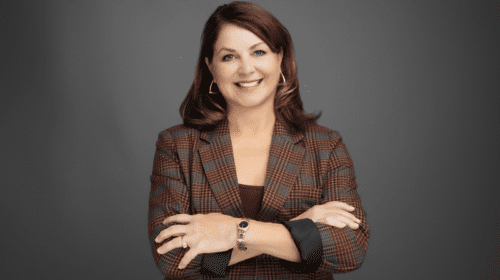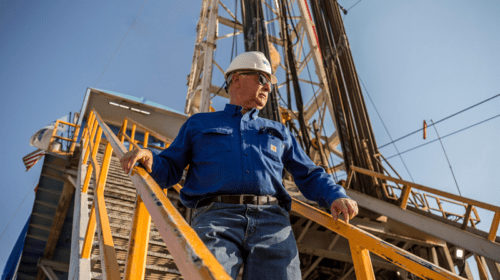Janeen Judah is driving down Interstate 55 on her way home to Houston from a conference in Indiana, and is “somewhere in Arkansas.” As she is driving, she is giving an interview – this interview. You don’t become general manager in a multinational energy corporation without perfecting the art of multitasking.
Among the first wave of women to join the oil and gas workforce, Judah has spent 40-plus years in the industry, starting with Arco in 1983 as a petroleum engineer and culminating with her role as GM of Chevron’s southern Africa business unit (Angola and Congo). She was then seconded to the Society of Petroleum Engineers (SPE), during which time she served as president elect, president and past-president from 2015-18.
She retired from Chevron in 2018, but never left the industry.
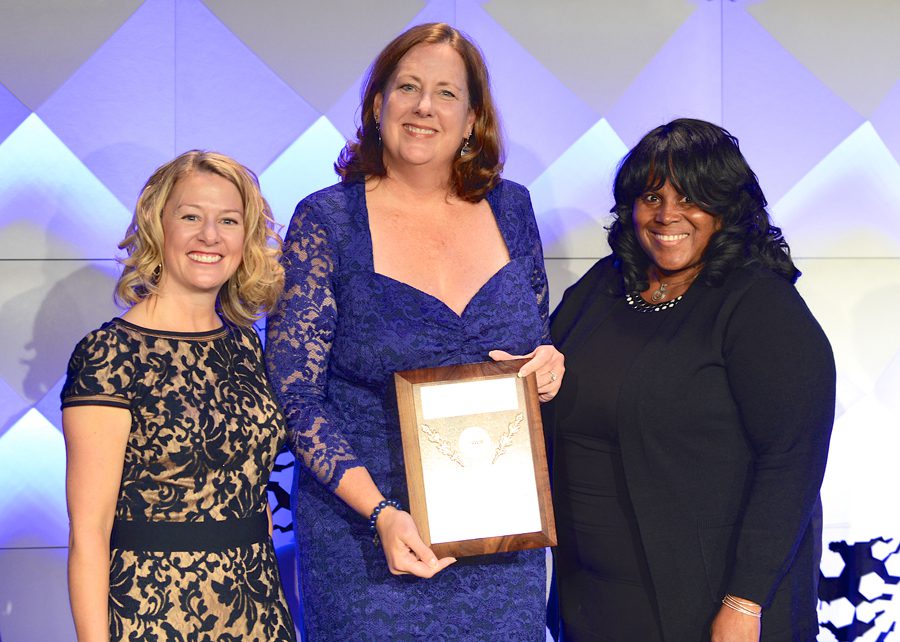
Woman on Board
Much of Judah’s time is now spent serving on boards of directors, including Patterson-UTI and Crestwood Equity Partners LP, where she is chair of the sustainability committee for both companies, Aethon Energy Management, and University Lands, where she is on the board of advisors. “It’s another way to use my expertise to give back,” she says.
Women currently account for only 14 percent of board seats in energy related companies, and change has been slow to come, but Judah urges women to be proactive in order to increase their chances of landing a board seat – “Network early and often.”
She also points out that the urgency to seat female board members is no longer there now that most publicly traded companies have at least one woman on their board. Case in point: She was the first female board member when she joined Crestwood Equity Partners a little less than four years ago, and the company now has four woman directors. Because the urgency to find female board members may be waning, Judah says women have to be prepared to compete “toe to toe” with other candidates. “Position yourself and think about what you would bring to a board.”
While there are many women who would like to take the knowledge and expertise they have gained from decades in the industry and join a board of directors, Judah says the groundwork must be laid years in advance. “You can’t wait until you retire,” stressing that her most important piece of advice to women is to start thinking about board membership early.
Chevron did not allow employees to sit on boards, but Judah had begun preparing long before her retirement in April 2018, and joined her first board the day after she left. “It’s all about reputation and who knows you.”
Search firms are not particularly interested in recruiting first time board members who have not proven themselves, so Judah says, “We get that first seat on our own.”
She notes that while board membership is far different than being an employee, it is time-intensive. Judah currently sits on four boards, as well as serving as president-elect of the non-profit Houston Audubon board of directors. In addition, she is also on board of the Dive Pirates Foundation and president of Phi Mu Foundation (her sorority). As she observes wryly, “I’m not that retired.”
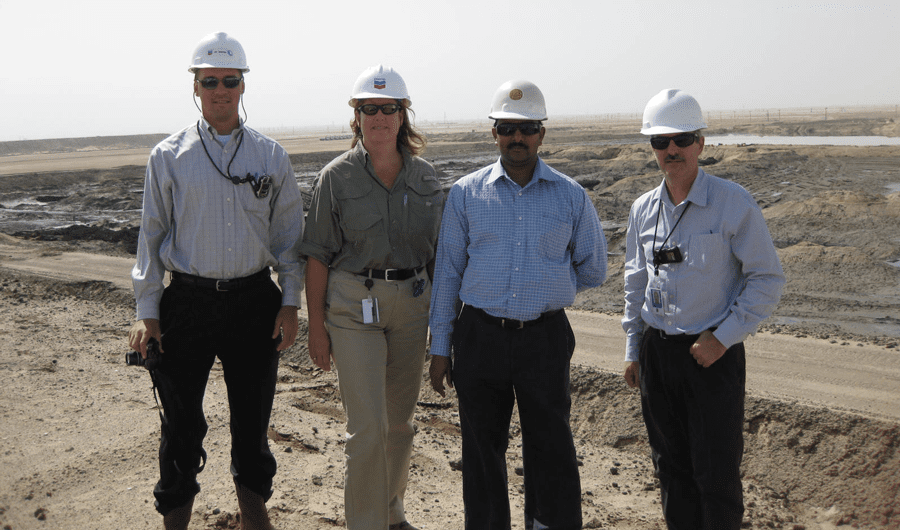
Madame President
One constant throughout Judah’s career has been the Society of Petroleum Engineers (SPE). She was involved with the organization as a student, later became a volunteer, and then served on the board while working in Midland, Texas. After moving to Houston, she continued her involvement, eventually becoming local chairman and overseeing SPE’s Houston members, which then numbered 20,000. At the time of her election in 2015, she was the group’s first female president in 12 years. She served on the international board for nine years and is now director emeritus and president-elect of the SPE Foundation.
Referring to her time as SPE president, Judah calls it a “once in a lifetime opportunity,” and considers it one of the highlights of her career. “It’s the technical organization for petroleum engineering knowledge. If you’re in upstream, it’s your professional organization.”
Her time as president was a whirlwind of travel – attending conferences in foreign countries and meeting ministers and heads of national oil companies (NOC). As she points out, more of SPE’s members (~150,000 at that time), resided outside of North America than within, and the organization still has no global competitor of equal stature.
Two events stand out in her mind. Referring to her June 2016 trip to Myanmar (formerly Burma) to speak at the Yangon Technological University (YTU) as the “most exotic” experience of her tenure, Judah recalls the country emerging from years of isolation due to international sanctions. There was very little western presence and the students spoke limited English, so she communicated through “a lot of hand waving.”
Although the country had little to no tourism, Judah, assuming she might never be in Myanmar again, took advantage of having a visa and made the most of her opportunity to travel around the country – an experience few westerners have had, as the country remains on the U.S. State Department’s “do not travel” list.
The “most memorable” event during Judah’s time as president was the June 2017 SPE upstream technical conference in Lagos, Nigeria. “The people were really friendly and welcoming,” she recalls. Attended by 1,200 to 1,500 Nigerians, Judah was one of two white people in attendance and the only white woman.
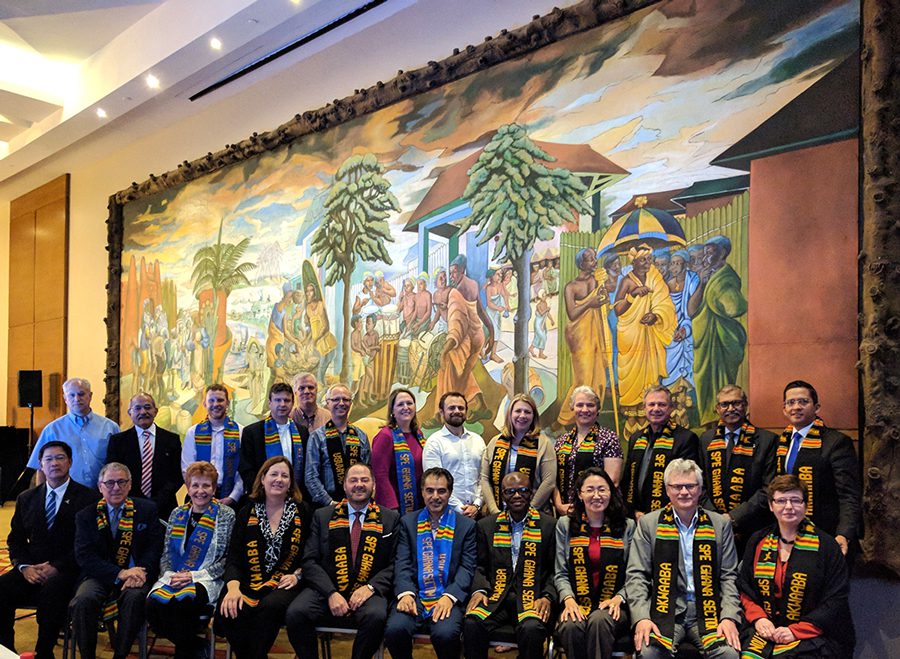
A Deliberate Choice
Judah is used to standing out in a crowd. There weren’t a lot of women majoring in petroleum engineering in 1977, although that was no deterrent, when she went to Texas A&M University, where she earned both her bachelor’s and master’s degree in PE. With her grades, she could have gone wherever she wanted and chosen any major and, although her father was an engineer, in keeping with the time, she says, “He didn’t exactly encourage me.”
“I could have been a doctor, but I was deliberate. I never changed my major [once I chose petroleum engineering]. I found the industry fascinating with big risks and big rewards. This was during a non-boom time and the people who went into the industry wanted to be in it.”
Women still only make up about 17 percent of petroleum engineering graduates and a January 2021 New York Times’ article painted a dire portrait of the prospects for PE majors whether male or female. Judah says this is a question she was asked frequently as president of SPE. “People would say the industry was dead and ask, ‘Why would you go into it in 1987… 1994… 1999… ?’” She would point out that it is a cyclical industry – “like Silicon Valley” – and that companies never lay off everyone.
“We’re still going to need oil and gas. It provides 84 percent of the world’s energy. The ones who are going into the industry are going to be that much more valuable.”
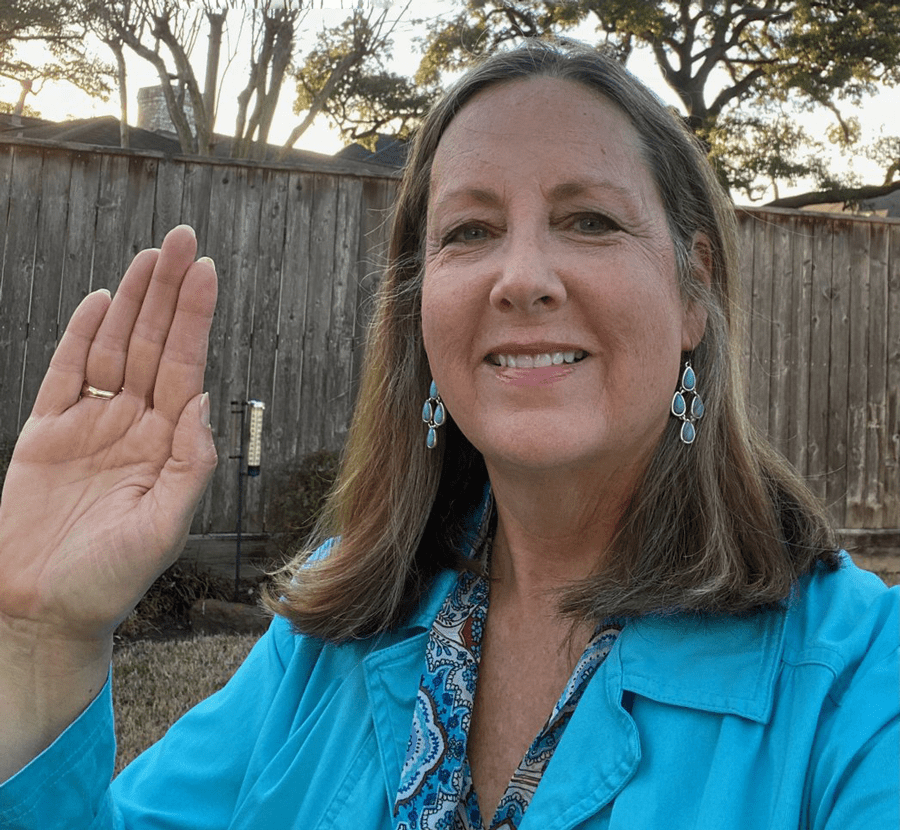
Speaking Legalese
“I joke that the only thing I don’t have is a medical degree from the Texas Tech system,” says Judah, who followed up her PE degrees from A&M with an MBA from the University of Texas Permian Basin, and a law degree from the University of Houston Law Center.
She recommends that engineers get an MBA because they don’t get much management training as part of their degree program and it’s useful for transitioning into management. With the availability of online and hybrid programs, she points out that there are many ways to go to school now. She earned her MBA by attending night school during a down cycle – “a classic striving situation.”
“One of my career accomplishments was keeping a job in Midland during the ‘80s.” Because the down cycle lasted for most of the decade, Judah worked with lawyers, who were dealing with industry lawsuits and thought to herself, “This isn’t that hard!” She also earned her law degree “as insurance, in case I ever wanted to leave the industry.”
Judah says it made her an excellent client, as lawyers didn’t have to spend time explaining things to her; however, she had no desire to practice law. “It’s not very exciting,” she says. “I’d rather be on the tech/operator side.” Another upside to having a law degree? “I’m not afraid of lawyers!”
Environmental Awareness
Combining her knowledge of law and the petroleum industry, Judah says people forget, “The federal Clean Air and Clean Water Acts were only passed in 1970. Before then, there was little to no environmental regulation. Old ways of operating, while legal then, are completely unacceptable today. It would shock people how much corporations spend now to correct environmental issues from more than 50 years ago.”
In 2007, she was named president of Chevron’s environmental management company, where her law degree enabled her to oversee most of the company’s environmental litigation. She was also responsible for “end of life” projects, such as the decommissioning of platforms and facilities, plugging wells, gas station (retail) and refinery site remediation, and superfund cleanup.
“Chevron’s policy was, ‘If it’s ours, we’ll fix it.’ Our preference was to handle it ourselves,” Judah says, “to ensure the problem was corrected.”
“My personal soft spot is in looking at partnerships. How can industry partner to create something different – greenways, open spaces, parkways? It’s crucial to cooperate and find solutions. We wanted good, clean, win-win situations and the best outcome for everybody, which surprised regulators.”
Calling it a “fascinating job,” Judah says she has only gotten more interested in environmental issues in the 15 years since then. “I like to play in that space.”
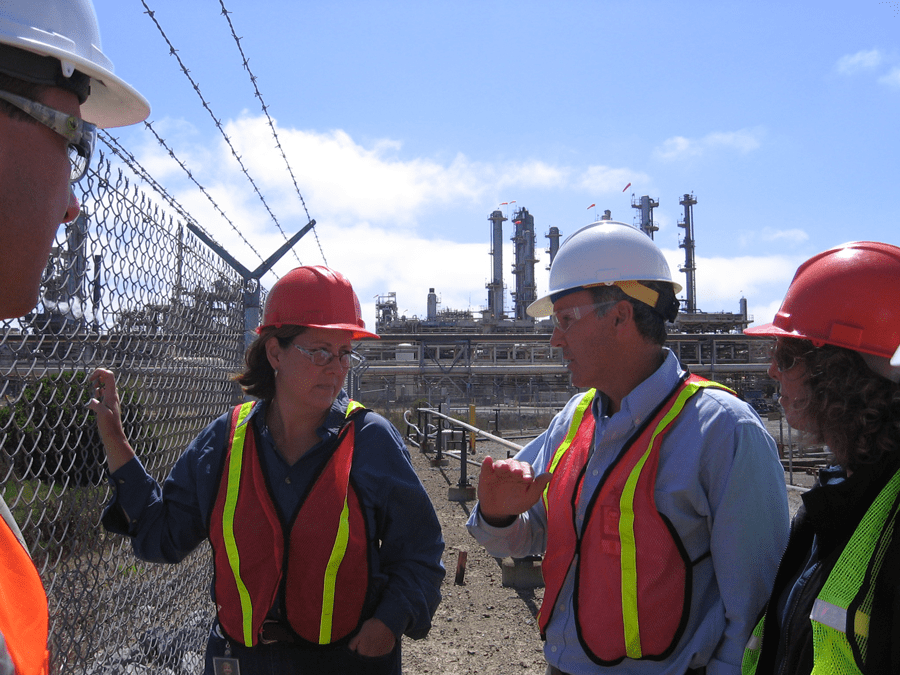
Reality Check
Heading Chevron’s environmental management company gave Judah a glimpse into the future and, while she’s supportive of the transition, she says there are two important points people need to bear in mind: There are no available substitutes for certain products, such as jet fuel and diesel, and, second, petroleum is the basis for numerous other products, including everything from polyester, a synthetic petroleum fiber used in over half of the world’s clothing, to medical equipment and supplies to components used in renewables.
In its October 2018 technical report, The Future of Petrochemicals, the International Energy Agency (IEA) stated, “Petrochemicals are particularly important given how prevalent they are in everyday products. They are also required to manufacture many parts of the modern energy system, including solar panels, wind turbines, batteries, thermal insulation and electric vehicles.”
Given the current geopolitical situation, which is one of the things that drew Judah to the petroleum industry in the first place, she says, “It will be interesting to see what happens in Europe this winter with Russia cutting off the Nord Stream pipeline. That’s going to be a reality check. A lot of what we’re talking about in the U.S. now are things they were talking about in Europe five years ago.”
“We won’t electrify as fast as people want, especially globally. There might be an attitude change [toward oil and gas] – particularly in Europe – after this winter.”
Energy Poverty
Judah has traveled to over 100 countries around the world, including a January 2020 trip to Ethiopia, which has minimal oil and gas production, and 78 percent of the population lives in rural areas. Fascinated with the country’s history and culture, she took the tourist trail in the northern part of the country and said she did not see a single piece of mechanized equipment.
“I was stunned. It was Biblical.” She witnessed energy poverty there firsthand when she saw villagers threshing grain with donkeys and cooking with cow pies, something she also observed in rural India.
“Are those people going to want to stop their development because of global warming?” she asks rhetorically.
While this is only one example based on her own personal experience, it is where those partnerships and alliances Judah talks about are critically important in helping provide energy to all corners of the world.
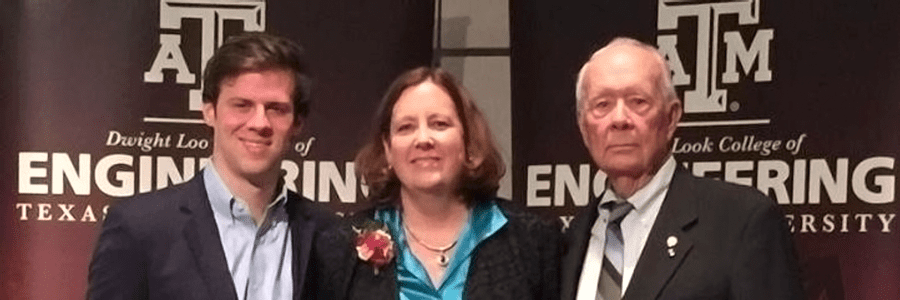
An Ongoing Legacy
Judah continues to be an ally for those currently in the industry and says, “I try to make the path easier, particularly for other women, because mine was hard, very hard. I think the world has changed a lot. Is it completely equitable? No. I give advice and offer coaching and mentoring when I can. I didn’t have mentors – certainly, there were no female mentors and very limited male mentoring – so I had to figure it out on my own. But I have no regrets. It’s still fascinating and interesting. I could go do something else, but I love the oil industry and what I do, so here I am.”
Headline photo: Janeen Judah at a solar facility built by Chevron on the site of an old refinery in Bakersfield, CA, with Chevron project manager Leslie Klinchuch (circa 2009).
Rebecca Ponton has been a journalist for 30+ years and is also a petroleum landman. She is the author of Breaking the GAS Ceiling: Women in the Offshore Oil and Gas Industry (Modern History Press; May 2019). She is also the publisher of Books & Recovery.
Oil and gas operations are commonly found in remote locations far from company headquarters. Now, it's possible to monitor pump operations, collate and analyze seismic data, and track employees around the world from almost anywhere. Whether employees are in the office or in the field, the internet and related applications enable a greater multidirectional flow of information – and control – than ever before.


